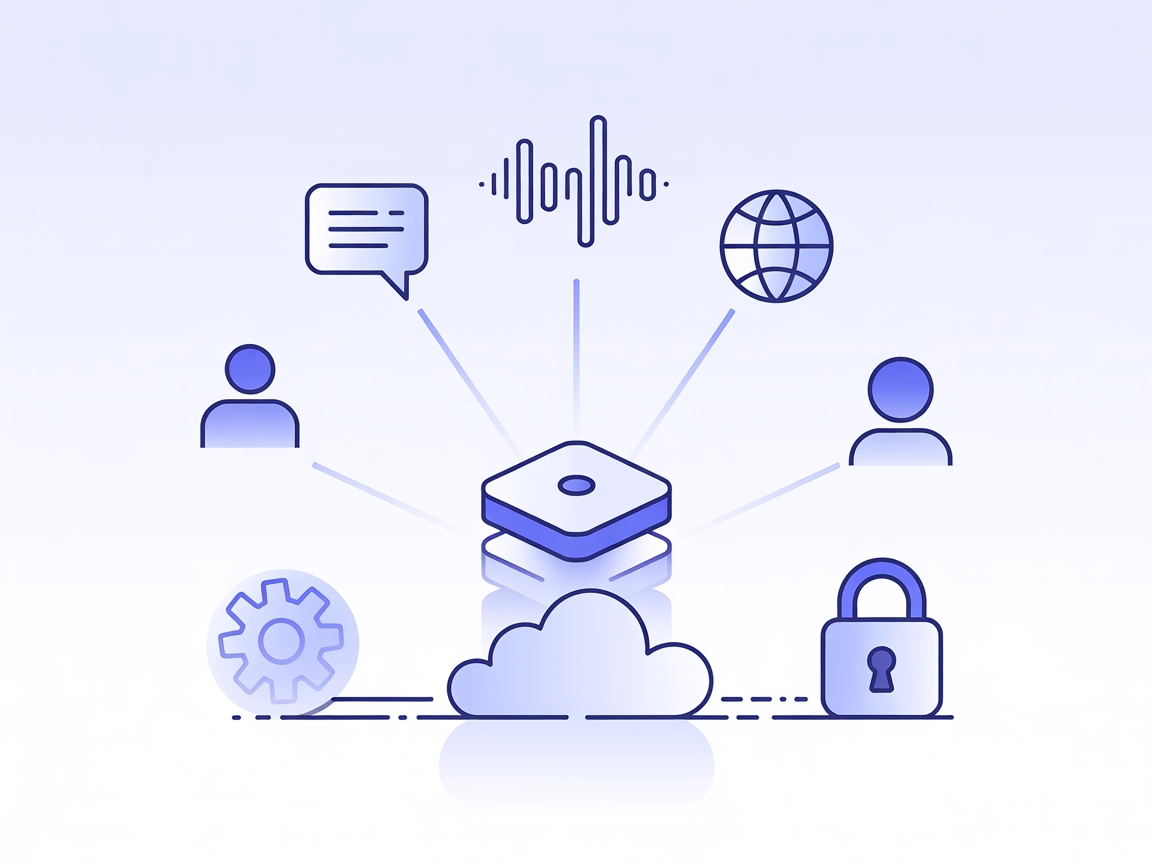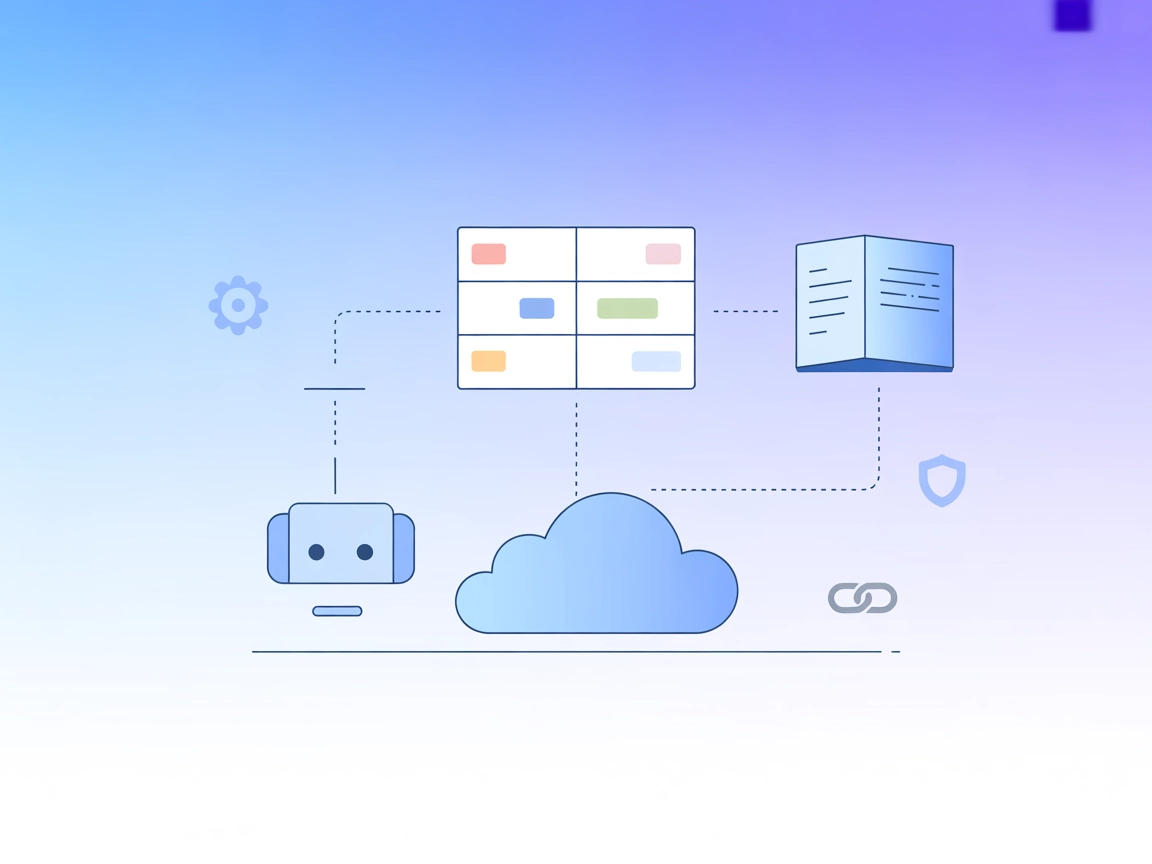
ModelContextProtocol (MCP) Server Integration
The ModelContextProtocol (MCP) Server acts as a bridge between AI agents and external data sources, APIs, and services, enabling FlowHunt users to build context...

Connect AI clients to Cartesia’s voice and audio API for automated text-to-audio, localization, and advanced audio workflows through the Cartesia MCP Server.
FlowHunt provides an additional security layer between your internal systems and AI tools, giving you granular control over which tools are accessible from your MCP servers. MCP servers hosted in our infrastructure can be seamlessly integrated with FlowHunt's chatbot as well as popular AI platforms like ChatGPT, Claude, and various AI editors.
The Cartesia MCP (Model Context Protocol) Server acts as a bridge that allows AI assistants and clients—such as Cursor, Claude Desktop, and OpenAI agents—to interact with Cartesia’s API. This enables enhanced development workflows by providing tools for speech localization, converting text to audio, infilling voice clips, and more. By integrating with Cartesia MCP, developers can automate and standardize the generation, manipulation, and localization of audio content, thereby streamlining tasks that require voice synthesis and advanced audio operations. The server plays a critical role in expanding what AI agents can do by exposing Cartesia’s specialized voice and audio capabilities through a unified MCP interface.
No prompt templates are mentioned in the repository or documentation.
No explicit resources are documented in the available files or README.
No explicit list of tools or server.py file is available in the repository to enumerate tools.
No setup instructions available for Windsurf.
pip install cartesia-mcpclaude_desktop_config.json file via Settings → Developer → Edit Config.mcpServers section:{
"mcpServers": {
"cartesia-mcp": {
"command": "<absolute-path-to-executable>",
"env": {
"CARTESIA_API_KEY": "<insert-your-api-key-here>",
"OUTPUT_DIRECTORY": "// directory to store generated files (optional)"
}
}
}
}
Securing API Keys:
Use environment variables in the env field of your config as above.
pip install cartesia-mcp.cursor/mcp.json in your project directory or ~/.cursor/mcp.json for global config.Securing API Keys:
Use environment variables in the env field of your config as above.
No setup instructions available for Cline.
Using MCP in FlowHunt
To integrate MCP servers into your FlowHunt workflow, start by adding the MCP component to your flow and connecting it to your AI agent:

Click on the MCP component to open the configuration panel. In the system MCP configuration section, insert your MCP server details using this JSON format:
{
"cartesia-mcp": {
"transport": "streamable_http",
"url": "https://yourmcpserver.example/pathtothemcp/url"
}
}
Once configured, the AI agent is now able to use this MCP as a tool with access to all its functions and capabilities. Remember to change “cartesia-mcp” to whatever the actual name of your MCP server is and replace the URL with your own MCP server URL.
| Section | Availability | Details/Notes |
|---|---|---|
| Overview | ✅ | Brief and clear description available in README |
| List of Prompts | ⛔ | No prompt templates documented |
| List of Resources | ⛔ | No explicit resources listed |
| List of Tools | ⛔ | No explicit tool interface listed in code/docs |
| Securing API Keys | ✅ | Uses env variables in config |
| Sampling Support (less important in evaluation) | ⛔ | No mention of sampling in docs or repo |
| Roots Support | ⛔ | No mention of roots |
How would we rate this MCP server?
The Cartesia MCP Server provides straightforward integration for audio and voice tasks and clear setup instructions for popular AI clients. However, it lacks documentation on available tools, resources, prompts, and advanced MCP features like roots and sampling. Based on the above, we would rate its MCP implementation as a 3/10 on completeness and utility for the protocol.
| Has a LICENSE | ⛔ |
|---|---|
| Has at least one tool | ⛔ |
| Number of Forks | 1 |
| Number of Stars | 2 |
It connects AI clients to Cartesia’s API, enabling advanced audio and voice operations like text-to-audio conversion, voice localization, audio infilling, and voice changes for files.
Common scenarios include generating audio from text for chatbots, localizing voices for multilingual content, editing audio with infill, and changing voices in audio files for prototyping or customization.
Add the MCP component in your FlowHunt flow, configure it with your Cartesia MCP details, and your AI agents can access all Cartesia voice and audio features programmatically.
Always store your API key in configuration environment variables (the 'env' section) rather than hard-coding it directly.
No prompt templates or explicit tool/resource documentation are provided in the Cartesia MCP repository as of now.
Streamline your AI workflows with Cartesia’s MCP Server for advanced voice transformation, localization, and text-to-audio capabilities.

The ModelContextProtocol (MCP) Server acts as a bridge between AI agents and external data sources, APIs, and services, enabling FlowHunt users to build context...

The Model Context Protocol (MCP) Server bridges AI assistants with external data sources, APIs, and services, enabling streamlined integration of complex workfl...

The Atlassian MCP Server bridges AI assistants with Atlassian tools like Jira and Confluence, enabling automated project management, documentation retrieval, an...
Cookie Consent
We use cookies to enhance your browsing experience and analyze our traffic. See our privacy policy.